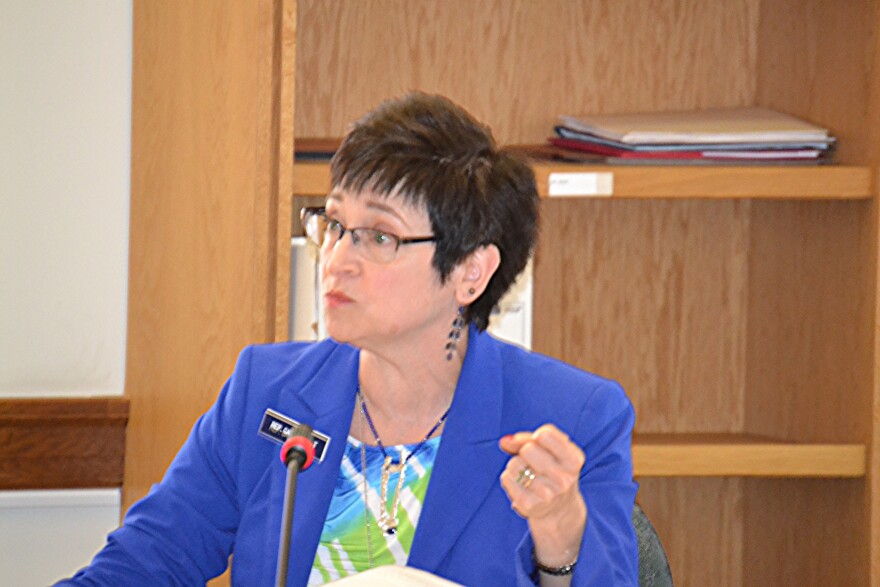AUGUSTA, Maine - Opponents of Gov. Paul LePage's income tax overhaul plan overflowed a State House hearing room today, as the second week of public airings on the governor's proposal got under way.
Some lawmakers on the Legislature's Taxation and Appropriations committees had strong criticism for the plan, while members of the public and lobbyists spoke out against provisions that would expand the sales tax to goods and professional services that are currently exempt.
For years, Mainers who love their snacks could avoid paying taxes on some of their treats simply by choosing foods that met certain nutritional qualifications. But there are relatively few tax havens for the hungry any more under Gov. Paul LePage's income tax reform plan.
Richard Rosen, the governor's chief of finance, says the list of processed foods that would no longer be exempt from a proposed 6.5 percent sales tax has been greatly expanded: "Corn chips, pretzels, beef jerky, processed nuts and seeds and many dessert and bakery items," Rosen said
The sales tax expansion to those currently tax exempt goods would be coupled with a wide ranging new tax assessment on professional services, such as attorneys' fees and pet grooming to entertainment activities such as movie tickets and ski passes. All of the new tax revenue is needed, Rosen says, to fund a reduction in the state's top income tax rate of a little more than 2 percent and provide other tax relief.
Rosen says the whole plan is driven by the conclusion that these taxes are discouraging people and businesses from coming to Maine. "We're here today because Maine's tax code is outdated, it's also uncompetitive, regionally, nationally and globally," Rosen said. "We need a new approach that incentivizes businesses to locate and expand in Maine, individuals to work and raise their families here and retirees to make Maine their state of residence."
To some economists, it all sounds good, in theory. But many state policymakers remain unconvinced. Rep. Diane Russell, a Portland Democrat on the Taxation Committee, says it's not high taxes that are discouraging young people, such as herself, from staying in Maine. "We are not leaving the state because of the tax rate," Russell said. "We are leaving the state because there are no good-paying jobs - or there are very few."
As an example of Maine's current tax impact on working families, Rosen said a family of three earning $50,000 a year in Portland would carry the 11th highest tax burden in the country.

But some of the administration's real world examples of how a lower tax rate would improve the state's economic climate were challenged by Democratic lawmakers, who viewed them as anecdotes. Appropriations committee member Gay Grant, of Gardiner, wanted more.
"I'm hoping that we'll see some data on how this plan is shown to be pro-growth, not assumed to be pro-growth," Grant said. "So I would love to see the data or studies."
"We're not operating in a vacuum, and if anybody is a defender of the status quo, I would like to see their data on how a high income tax serves our interest going forward," responded Sen. Roger Katz.
Katz was one of the few Republicans to respond to some of the Democratic criticism during the morning segment of the hearing, a segment that was dominated by lobbyists opposed to the expansion of the sales tax to professional services. Charles Soltan represents the Maine Association of Criminal Defense Lawyers. He said the new tax on attorney's fees would hit lawyers with small rural practices the hardest, as well as those who represent the poor.
"We've had multiple discussions about the provision of indigent legal services before, about how difficult it is, about how little those lawyers are being paid, and you're adding a huge administrative burden onto that," Soltan said.
Other speakers representing a wide range of sporting and entertainment activities said the new taxes would drive business away.
Lawmakers will continue their work Wednesday with a review of how the state budget impacts programs affecting agriculture, conservation and forestry.


